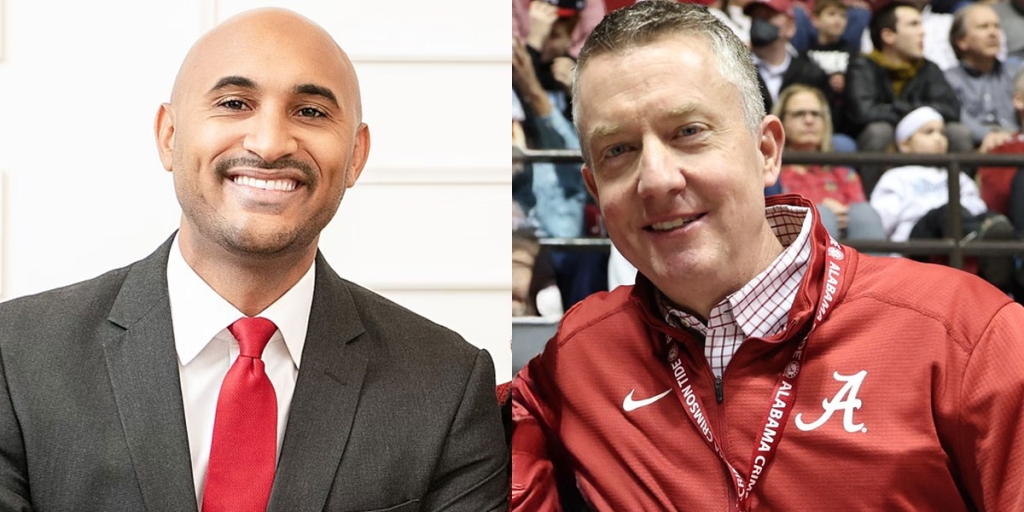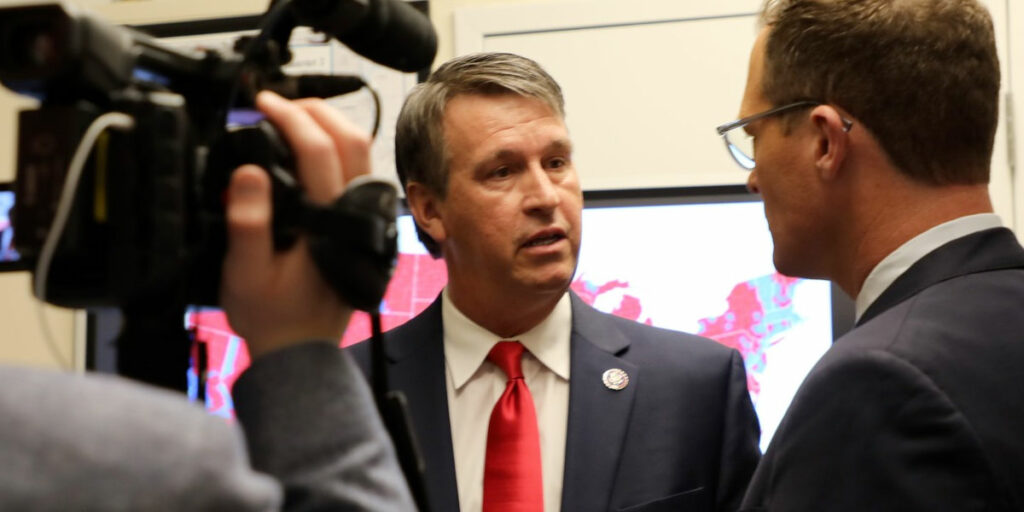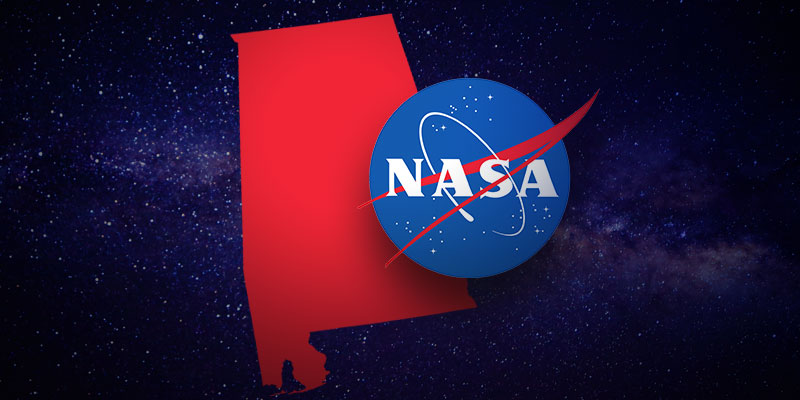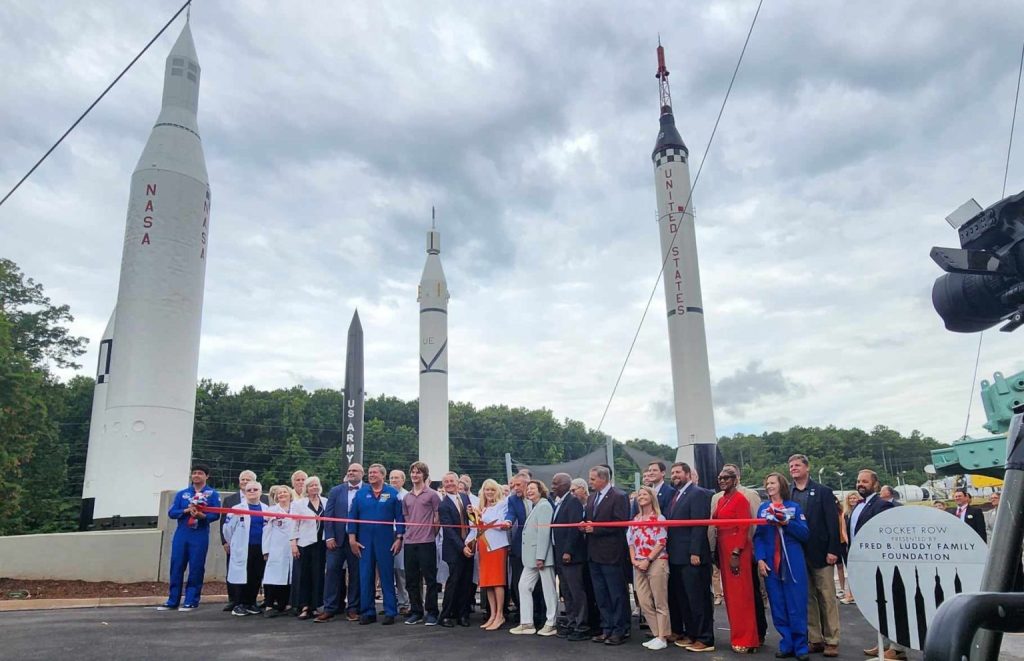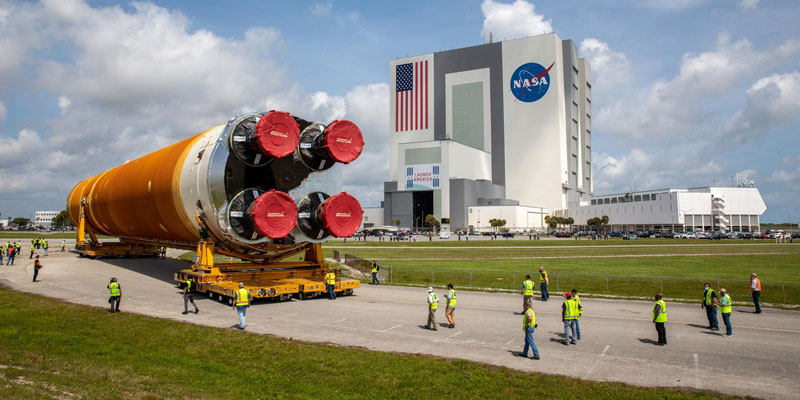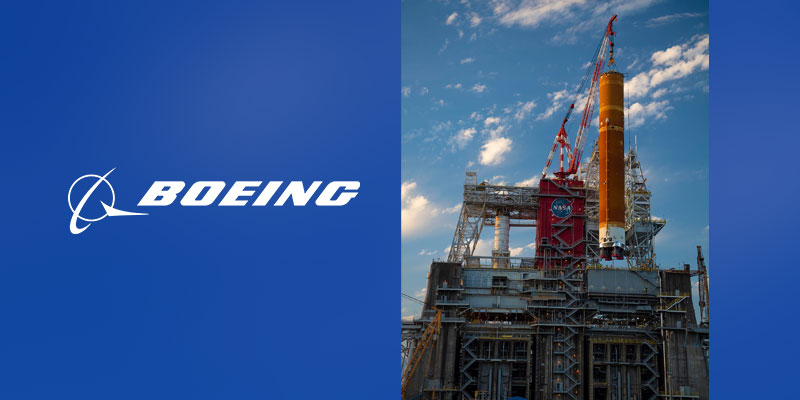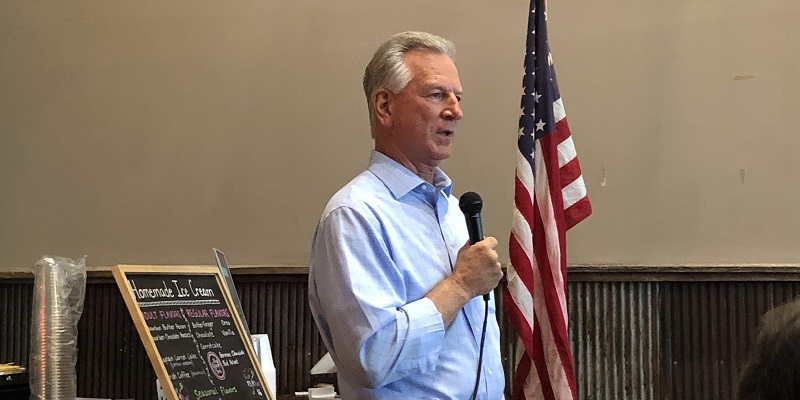Congressman Robert Aderholt (AL-04) on Wednesday delivered a speech on the U.S. House floor honoring North Alabama’s Apollo 11 contributions and urgently calling for the Space Launch System (SLS) to stay on schedule for the future of American space exploration.
Aderholt’s comments came the week of Apollo 11’s 50th anniversary. The launch occurred on July 16, 1969 and the landmark landing on the Moon’s surface happened four days later. Saturn V, which was developed at Marshall Space Flight Center in Huntsville, powered the mission.
After speaking of the legacy of Apollo 11, Aderholt turned his attention to how Alabama is set to make history once again.
“I am excited about the president’s call to accelerate our plans and to land again on the Moon, by 2024,” he said. “This mission, named Artemis, will also be historic – a woman astronaut will be the next person to step on the Moon.”
“I am very proud of the role my home state played in the development of our most powerful rockets, the Saturn family. … Likewise, I am proud that Marshall Space Flight Center, including the Machoud Assembly Facility, is the designer and builder of the Space Launch System. This will be the most powerful rocket in the world, and it is approximately 90% finished. The taxpayer owns it and will benefit from it as a national asset. It is the successful, combined work of private companies and suppliers from virtually every state in the nation,” Aderholt outlined.
Extolling the capabilities of SLS, he then said the system can be “ready by 2024, but only if we move ahead this year with that goal.”
Aderholt urged his colleagues to join him in supporting SLS.
“Systems like the SLS and Orion inspire innovation, and maybe one day other rockets and capsules will surpass them, but to reach our goal of 2024, we need to stay focused and complete these nearly mature systems,” he emphasized.
The Alabama congressman said the nation’s space ambitions should not end with the next Moon landing.
“Let’s reach that peak, let’s make that landing,” Aderholt concluded. “And as we ponder the future of the Moon, let’s look up again, and set a date, a real mission date, for setting foot on Mars.”
Watch:
Aderholt’s full remarks as follows:
Fifty years ago this week, three brave Americans stepped foot on the Moon.
When we look at our children’s toys, it is amazing that they contain more data processing power than the systems which operated the Apollo vehicles.
These three American astronauts: Neil Armstrong, Buzz Aldrin, and Michael Collins, could not know whether they would return. They were willing to serve their country and proud for America to be leading the world in space.
But even if our space program got a strong jump start because of the Cold War, this mission was also about the human spirit and the need to explore. The whole world was eager to hear news of the mission. No matter what might happen in the future, this would be the first time human beings stepped foot on a world other than our home. Neil Armstrong’s description of this mission as a “leap” was fitting then, and it is instructional now.
I am excited about the president’s call to accelerate our plans and to land again on the Moon, by 2024. This mission, named Artemis, will also be historic – a woman astronaut will be the next person to step on the Moon.
I am very proud of the role my home state played in the development of our most powerful rockets, the Saturn family. You can still see a real Saturn V rocket, suspended horizontally, at the U.S. Space and Rocket Center in Huntsville, Alabama.
Likewise, I am proud that Marshall Space Flight Center, including the Machoud Assembly Facility, is the designer and builder of the Space Launch System. This will be the most powerful rocket in the world, and it is approximately 90% finished. The taxpayer owns it and will benefit from it as a national asset. It is the successful, combined work of private companies and suppliers from virtually every state in the nation.
The Saturn V rocket was able to execute Apollo missions in one launch because the rocket’s third stage propelled the lander and re-entry vehicle to the Moon’s orbit. Similarly, the SLS Exploration Upper Stage, or EUS, will enable a payload delivery to Moon orbit – including the Orion capsule – of 45 metric tons – three to four times greater than other launch vehicles currently in use or close to completion. We can have that EUS capability ready by 2024, but only if we move ahead this year with that goal.
Systems like the SLS and Orion inspire innovation, and maybe one day other rockets and capsules will surpass them, but to reach our goal of 2024, we need to stay focused and complete these nearly mature systems.
Some have said in recent years about going to the Moon, “Been there, done that.” With all due respect, I disagree. But of this new mission to the Moon, I might say, “Go there, but don’t stop there.” Sustainability offers many future benefits, but let’s not get distracted and overfill our backpack for this first, human return to the Moon. Let’s reach that peak, let’s make that landing. And as we ponder the future of the Moon, let’s look up again, and set a date, a real mission date, for setting foot on Mars.
I yield back, Mr. Chairman.
Sean Ross is a staff writer for Yellowhammer News. You can follow him on Twitter @sean_yhn





